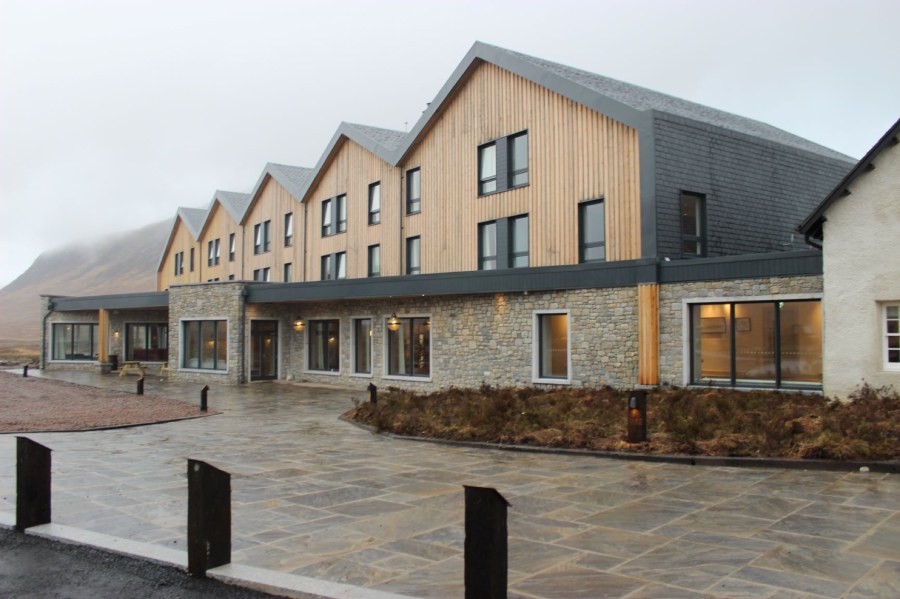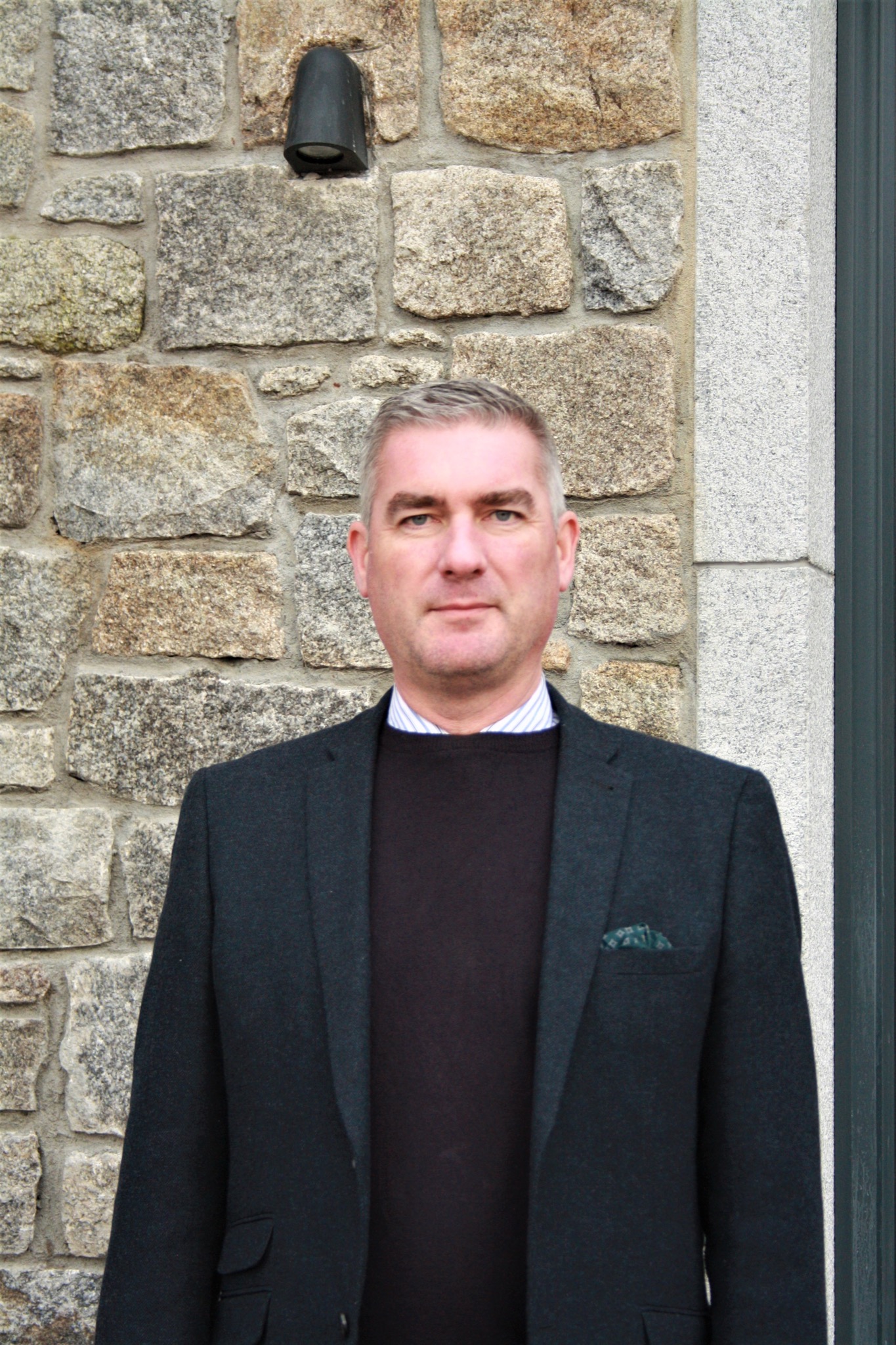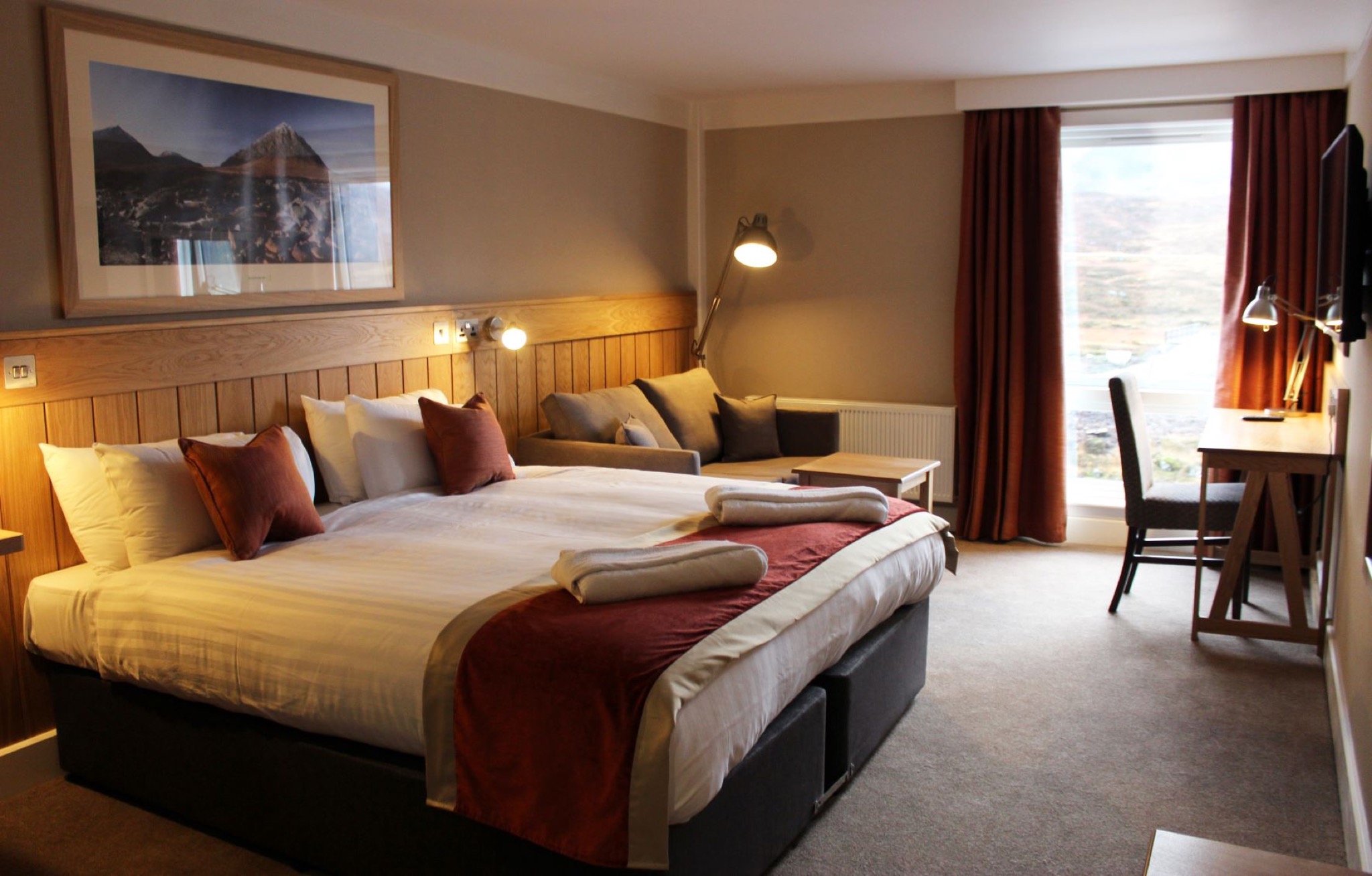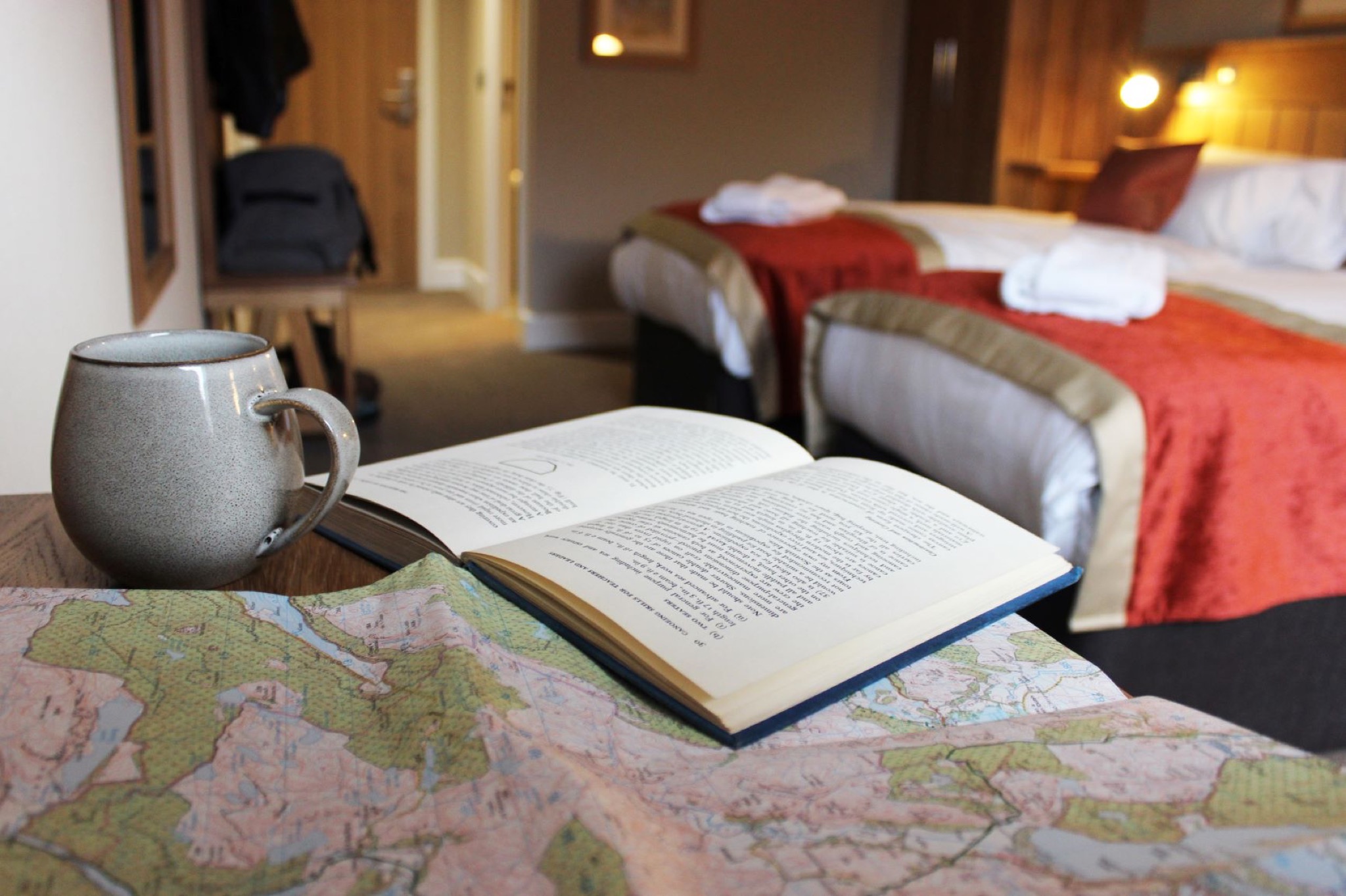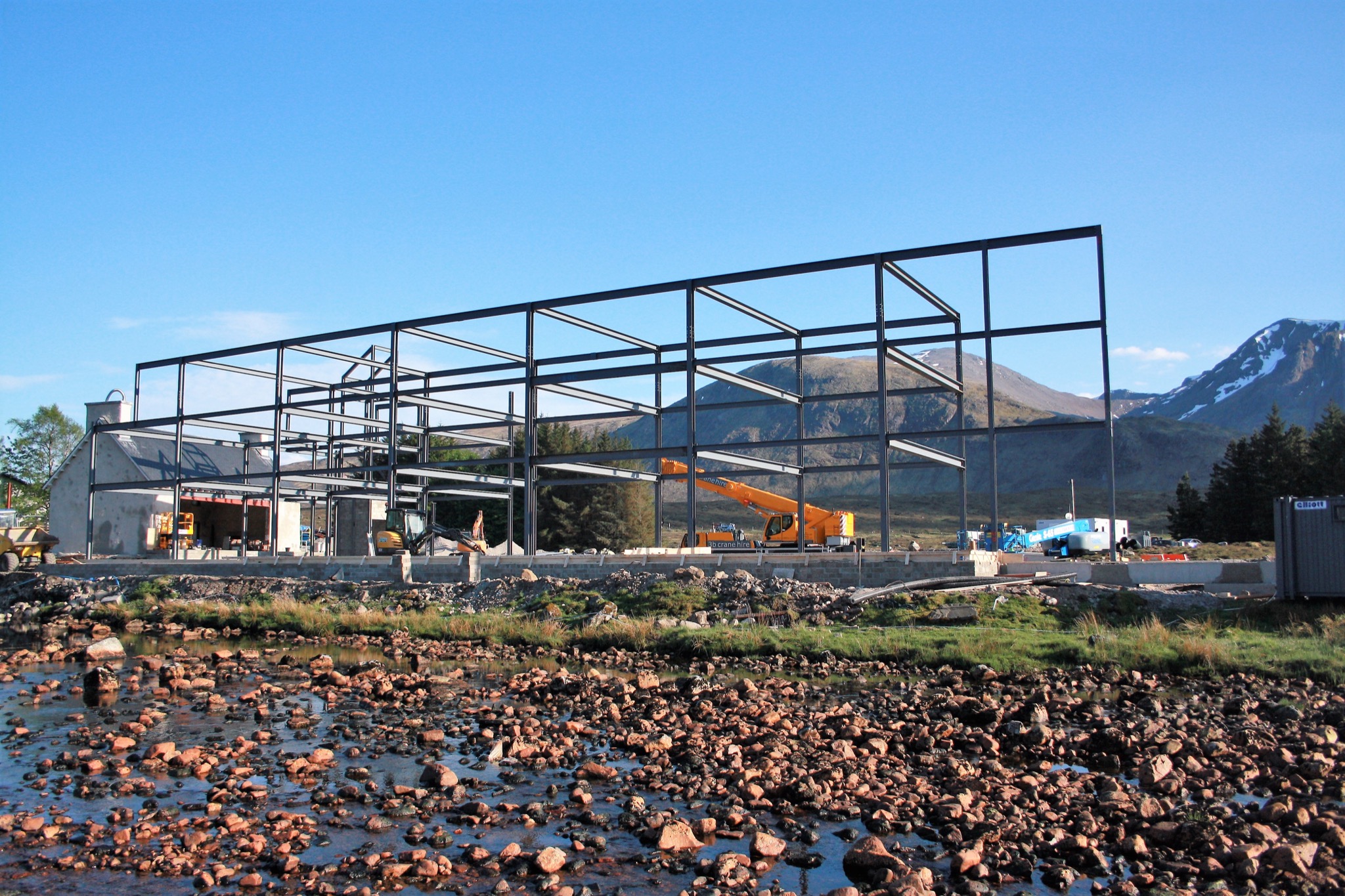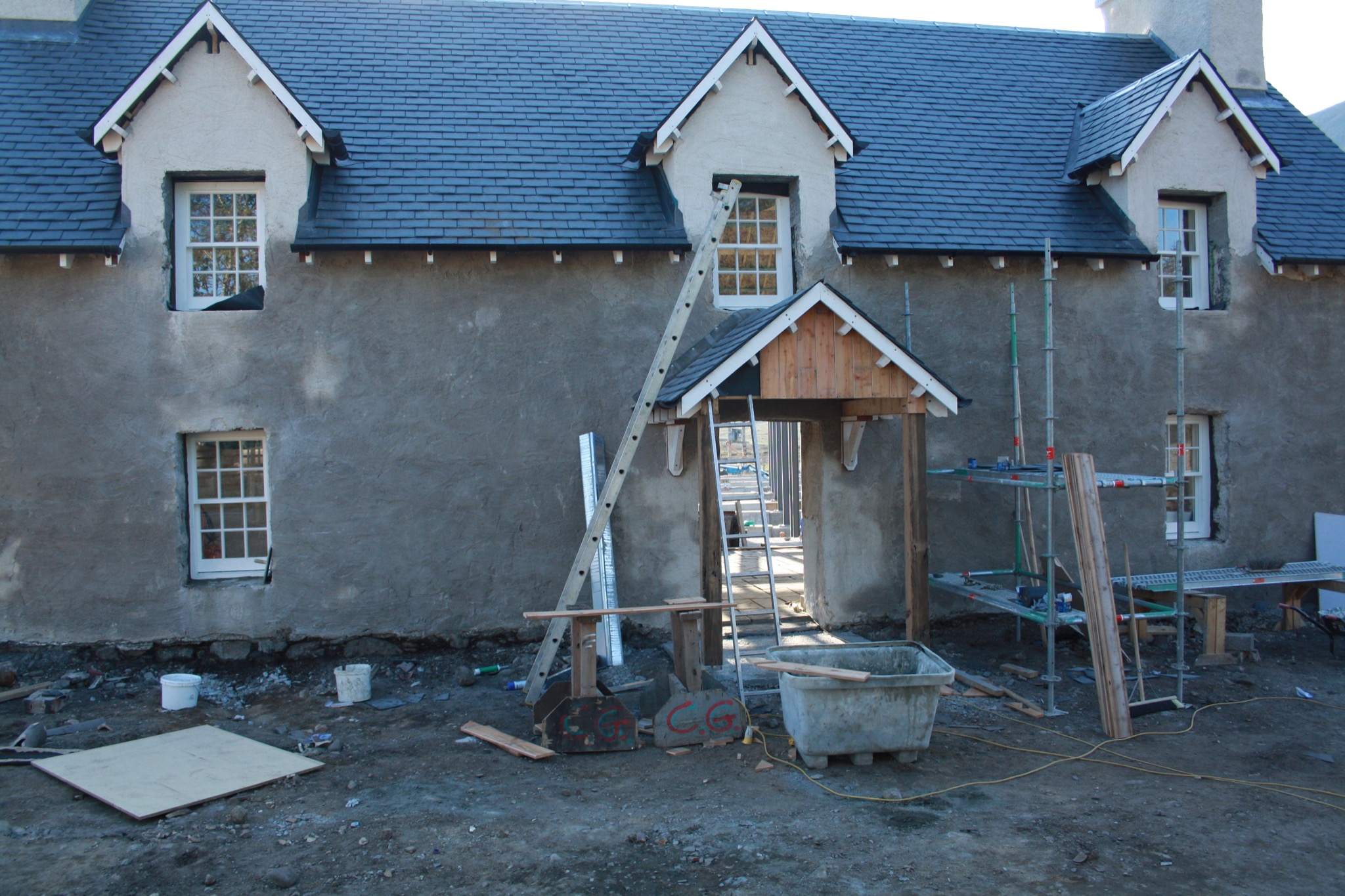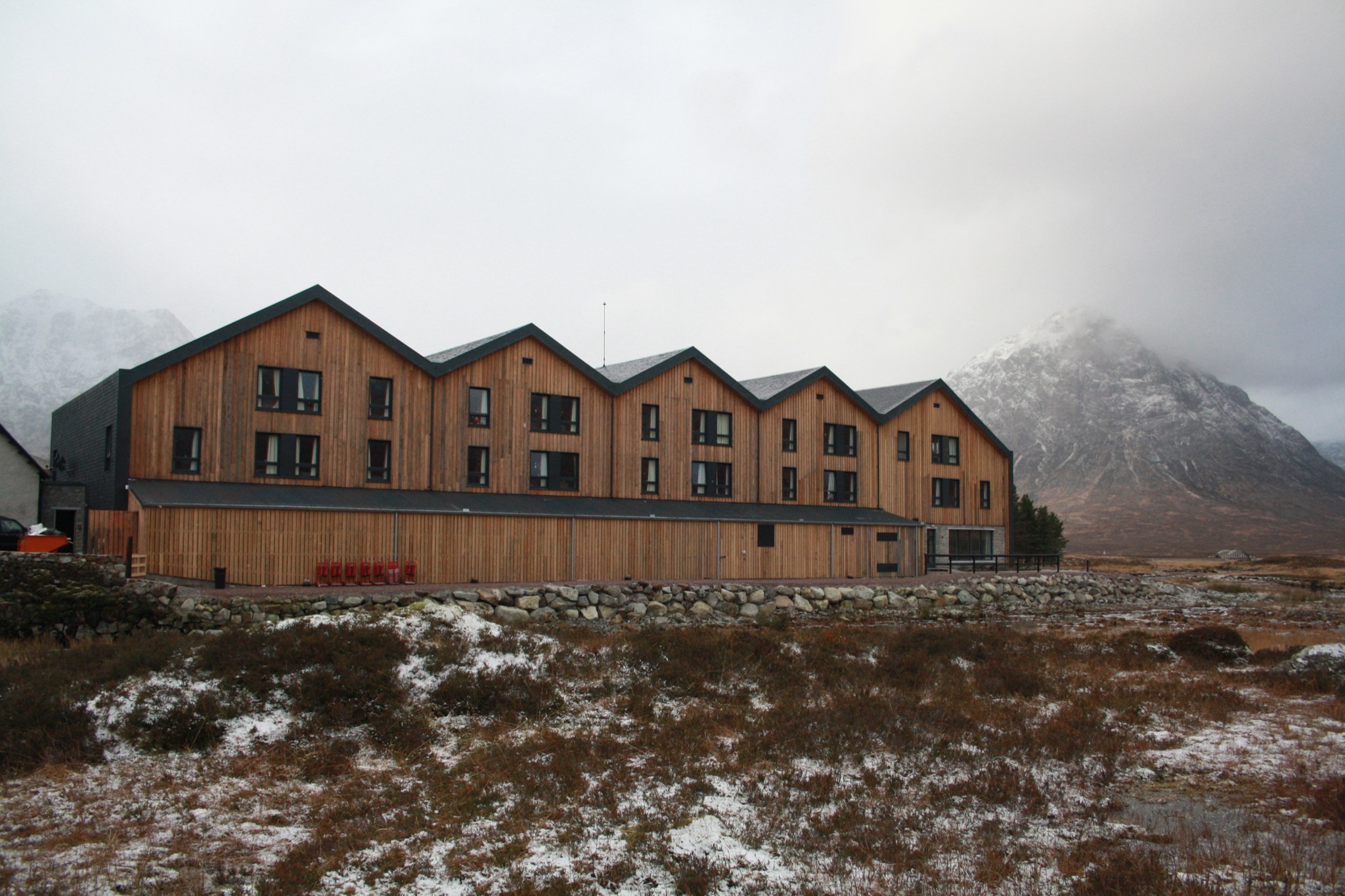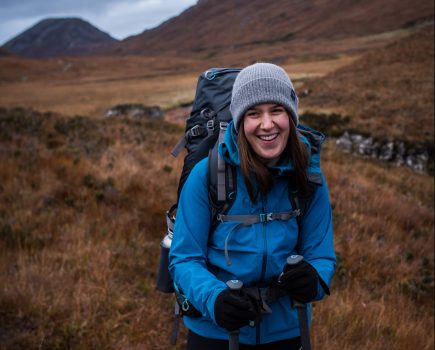There was plenty of controversy when the owners of this ancient and well-loved inn announced its refurbishment. Richard Baynes got a sneak peek at the new Kingshouse before it reopens on 8 February.
The giant steel frame that rose last summer at one of the most photographed and gawped-at sites in the Highlands looked like the skeleton of a factory, dwarfing the remnant of the old drovers’ inn.
Plans to redevelop the Kingshouse Hotel, at the dramatic junction of Glen Coe, Glen Etive and Rannoch Moor, prompted objections from conservation bodies, mountaineers and more, and at that point it looked like they were right: it was an eyesore.
Now, six months on, it’s a different prospect. The hotel is very nearly finished – it opens in early February (Feb 8) – and the new building’s still massive, but wood and slate cladding, stone details and the beginnings of landscaping have softened the look so it fits a bit better with its surroundings.
“Can it take the place of the old Kingshouse? That was an outdoors legend, hosting club dinners and ceilidhs, boozy bar sessions, shivering campers and frozen climbers”
I recently had a tour of the building with Graeme Ferguson, who project-managed the build for land agents Bidwells, and he’s happy with the feedback since the exterior was completed.
“We’ve had a lot of positive comments on the building, that it blends well,” he says. “Although it’s a large building, because it is such a huge vista here it settles down into the countryside quite well and it doesn’t have quite the impact people were afraid it was going to have.”
It’s unlikely objectors will be much happier: the 57-bed building, which has cost £12.5 million, is very different from the old traditional structure, all demolished now except for the original small 17th Century inn house.
But it’s here now, and the question is, can it take the place of the old Kingshouse? That was an outdoors legend, hosting club dinners and ceilidhs, boozy bar sessions, shivering campers and frozen climbers, a place where faces familiar from the hills over the years regularly put in an appearance.
It wouldn’t be hard to beat the tatty old place’s bedrooms, where staff battled to keep mould and damp at bay.
Upstairs in the new extension the rooms are a vast improvement, modern and comfortable without being too corporate. A double with breakfast starts at £105.
The top-floor “signature rooms” – two large doubles with their own terraces – are breathtaking, with possibly the best view ever of the Buachaille, over the trees.
Ferguson says they will cost a couple of hundred quid or so a night. Even a bothy fan like me who likes to keep costs down wouldn’t begrudge splashing the cash for a night or two here.
Downstairs, the remnant of the old inn is a new bar aimed at outdoors-lovers and West Highland Way users – the trail runs right past the hotel. It’s a bit of a barn but two fires and wooden decor make it cosier.
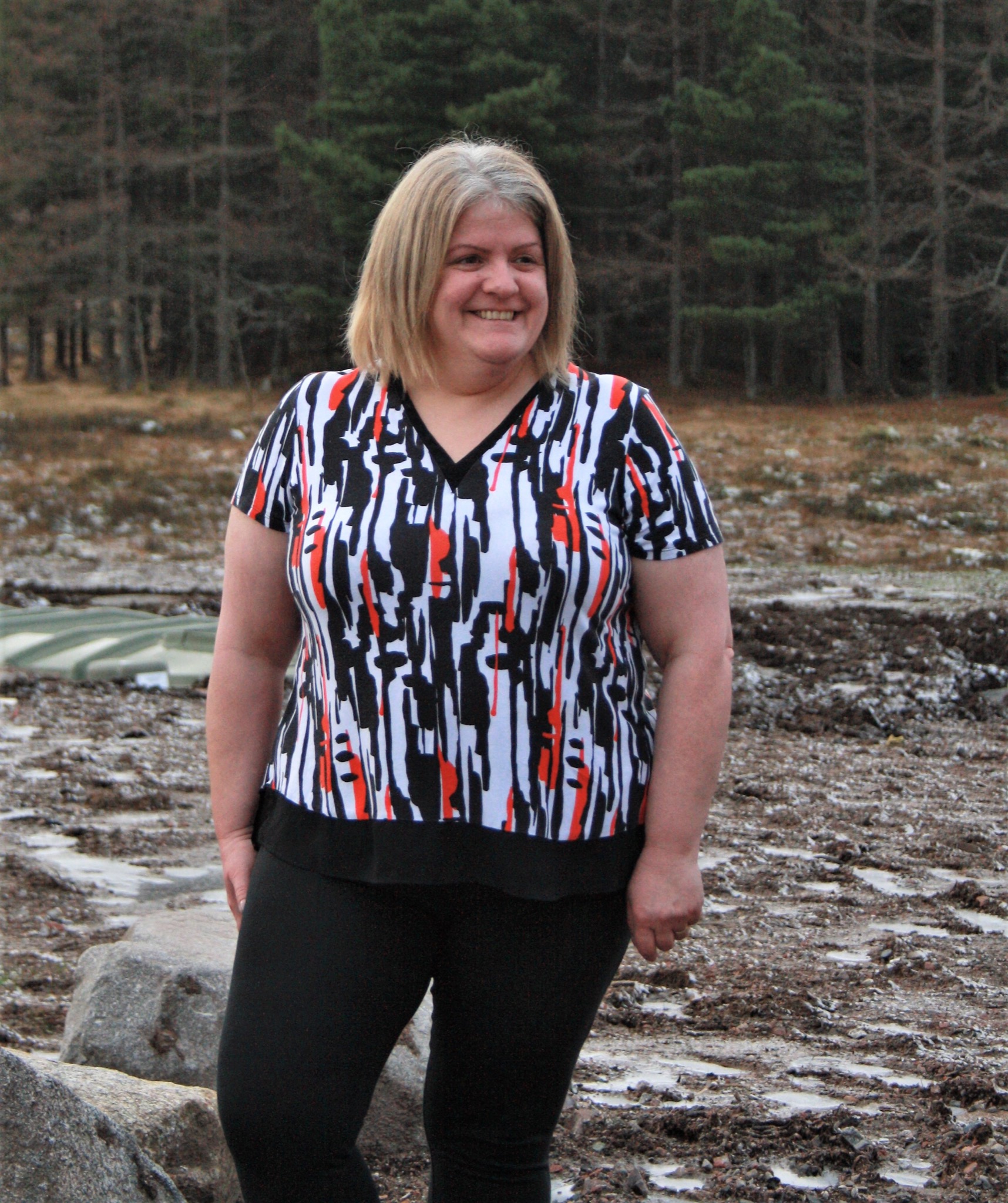
Jessie Cattanach: “I’m confident the place will be a success with the outdoors folk”
Image © Richard Baynes
The main lounge and dining room in the new section are on a whole different scale, and they too make the most of the new Buachaille view, with floor-to-ceiling glass. The floors and cladding of reclaimed wood warm things up but there’s no hiding the industrial proportions of the place.
Jessie Cattanach is a familiar face: she has been at the hotel for 32 years and is now guest services manager. She’s delighted with the changes, remembering the battle she had before to keep it up to scratch.
“I’m confident the place will be a success with the outdoors folk,” she says. “And there is plenty of space in the dining room for a dance…”
“There was a risk that it could close down purely because of the cost of redeveloping, and they took the philanthropic view that they would like to invest this money not for profit but to provide jobs”
She shows me the bunkhouse – which will cost a stiff £35 a night – and the public toilets, where a shower costs £1. Campers who use the ground across the river will still be welcome.
Graeme Ferguson knows not everyone loves the new hotel, and it will be hard to make a profit, but says the wealthy Belgian Spoelberchs, the Black Corries estate owners who bought the hotel and bankrolled the build, saw this investment as the best way of keeping it open.
“There was a risk that it could close down purely because of the cost of redeveloping, and they took the philanthropic view that they would like to invest this money not for profit but to provide jobs – there will be 54 jobs here – and to keep this facility going as a benefit for the wider area,” he says.
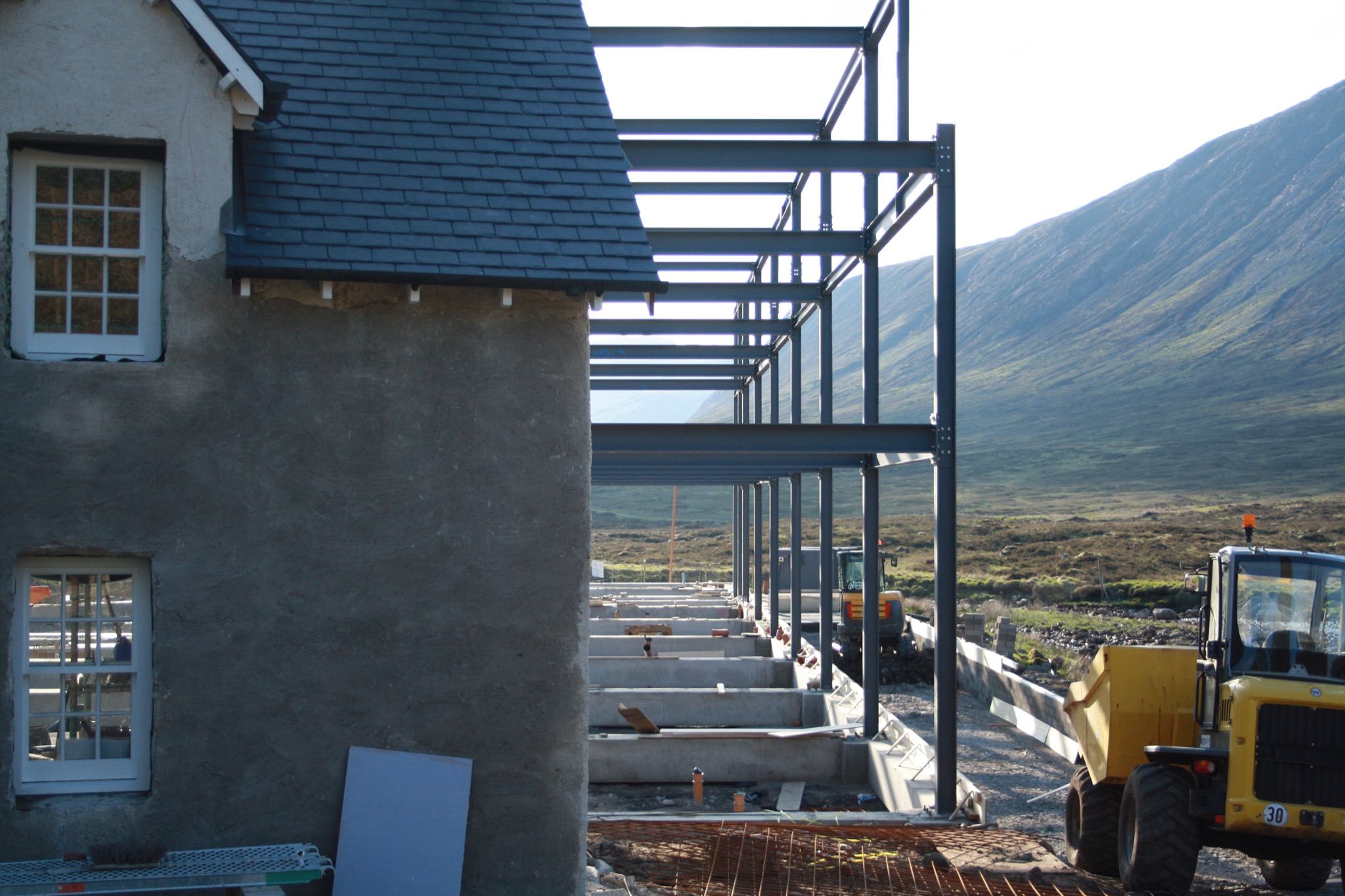
Redvelopment and investment was seen as a way to safeguard jobs in the local area
Image © Richard Baynes
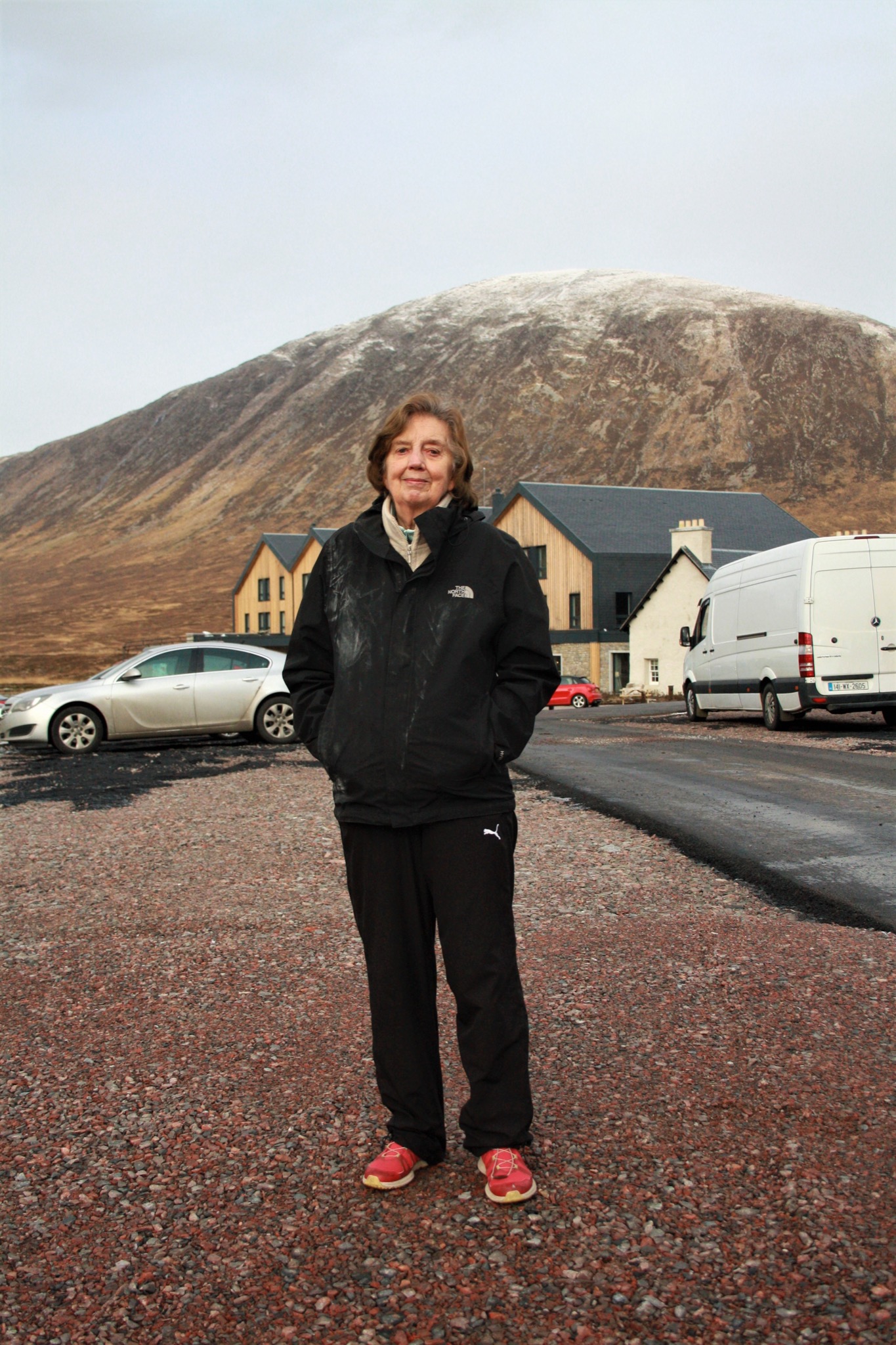
Jenny White: “180 years of climbing and hillwalking tradition have been wiped out.”
Image © Richard Baynes
Just up the track from the hotel lives Jenny White, a keen walker who moved here four years ago partly because of the friendly, welcoming pub. She objected strongly to the new building.
Now it’s finished she says it’s “less bad” than she feared, with some tasteful touches, but having seen inside the building she says bluntly: “180 years of climbing and hillwalking tradition have been wiped out. They have kept a few ice axes and a bit of furniture from the old bar but it’s not the same.
“Climbing and walking on the mainland started here and it’s such a shame there’s so little left. They will struggle to recreate the old atmosphere.”
But keeping the old clientele, and attracting new customers, is essential if the business is to make ends meet.
“I think we’ll get a greater range of people,” Ferguson says. “That’s always been our aim, to not only get walkers and climbers but to get travellers and foreign customers too. It was very seasonal before and we’re hoping to have a year-round offering, not just for the peak months.”
Let’s hope he’s right: it would be sad indeed if the Kingy became a stop for coach tours and nothing more.
Header image courtesy of and © Bidwells

